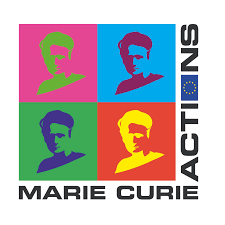Esperanza Alfonso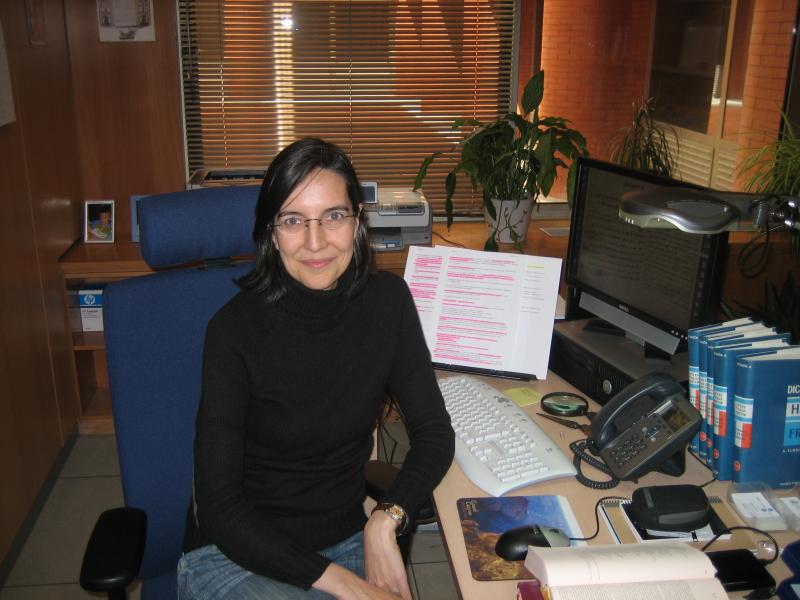
Esperanza Alfonso holds a PhD in Hebrew Philology from the Universidad Complutense de Madrid (1998). She has taught at Cornell University (2000, 2004-2005), the University of Wisconsin—Madison (2002-2005), Universidad Complutense de Madrid (2006-2008) and the University of Pennsylvania (Spring 2013). In 1998-1999, she received the Martin Gruss Fellowship and in 2013 the Selma Ruben Fellowship at the Katz Center for Advanced Judaic Studies in Philadelphia, and she has also held a Skirball Visiting Fellowship at the Oxford Center for Hebrew and Jewish Studies (Spring 2008).
In 2008 she joined the Centro de Ciencias Humanas y Sociales of the Consejo Superior de Investigaciones Científicas in Madrid as a tenured research fellow.
Between 2008 and 2012 she was the Principal Investigator of an ERC Starting Grant (ERC-2007-StG 209044-INTELEG), “The Intellectual and Material Legacies of Late Medieval Sephardic Judaism: An Interdisciplinary Approach;” currently she is a member of the project “Legado de Sefarad. La producción material e intelectual del judaísmo sefardí bajomedieval,” (FFI2012-38451) directed by Javier del Barco. Her research centers on Jewish cultural history in the Middle Ages, with a focus on the Iberian Peninsula.
Her main publications include:
- Islamic Culture Through Jewish Eyes: Al-Andalus from the 10th to the 12th-Century. London: Routledge, 2007.
- (ed.), “Patronage in Islamic Societies.” Special issue, Al-Qantara 29, 2 (2008).
- (ed.), with Carmen Caballero-Navas. Late Medieval Jewish Identities: Iberia and Beyond. New York: Palgrave-Macmillan, 2010.
- (ed.), with Ross Brann. “Al-Andalus and its Legacies.” Special issue, Comparative Literature Studies 45, 2 (2008).
- (ed.), with Javier del Barco, M. Teresa Ortega Monasterio and Arturo Prats. Bibles of Sepharad/Biblias de Sepharad. Madrid: Biblioteca Nacional de España, 2012.
She is currently co-supervising with Rachid El-Hour (University of Salamanca) David Torollo’s graduate work on early Hebrew literary prose, and with Aurora Salvatierra (University of Granada) Isabel Marín’s graduate work on a medieval commentary on the book of Proverbs.
She serves on the Editorial Board of Sefarad (since 2010) and the Journal of Medieval Iberian Studies (since 2011).
Mercedes García-Arenal

Mercedes García-Arenal has a PhD in Arabic and Islam from the Universidad Complutense in Madrid (1976). She was a post-doctoral fellow in the London School of Oriental and African Studies (1976-1978) on a British Council Scholarship. In 1981, she received tenure as a Junior Researcher at the Consejo Superior de Investiagaciones Científicas, where she has been a Research Professor since 1990. She was a Visiting Scholar at the Institute for Advanced Study in Princeton (1988-89), and Directeur d’ Etudes de l’ EHESS (Paris) in the Spring term of 1992.
She has been actively involved in service to her institution, mainly as Member of the Steering Committee, Junta de Gobierno, CSIC (2003-2008) and Member of the Comisión de Área de Ciencias Humanas y Sociales, CSIC (2005-2008). She has also invested a lot of time and energy in being Directing Editor of the journal Al-Qantara. Revista de Estudios Árabes, from 1999 till 2013. She is also on the editorial board of several scholarly journals: The Maghreb Review (1999-present), Hésperis-Tamuda (2008-present) Journal of Medieval Iberian Studies (2010-present), Mediterranean Historical Review (2009-present), and Journal of Early Modern History (2012-present).
Among the numerous invitations she has received to present her work worldwide, she has held the Stewart Professorship in the Humanities at Princeton University (April 2013) given the Cochrane Lecture, Department of History, University of Chicago (2010) and the Hamilton Gibb Lectures, Center for Middle Eastern Studies, Harvard University (2008).
She has been PI of several research grants funded by the Spanish nacional government and has participated in international projects such as “Individual and Society in the Mediterranean Muslim World”, funded as an à la carte project by the European Science Foundation and directed by Robert Ilbert (1991-95) In this project she was team leader of Hub 6, “Religious activity and experience.” She was also PI of the Research Program “Islam y disidencia religiosa en la Europa protestante y en la católica,” CCHS-CSIC (2010-2013).
She has directed 10 PhD dissertations.
Since 2013, she is currently Principal Investigator of the ERC Advanced Grant “Conversion, Overlapping Religiosities, Polemics, Interaction: Early Modern Iberia and Beyond,” the CORPI project.

Her research focuses on the religious history of Iberia and the Muslim West, mainly on religious minorities: conversion, polemics, messianism, religious dissidence, and dissimulation. She has focused on the impulses of assimilation and rejection by mainstream societies of religious minorities such as Muslims and converted Muslims in Iberia and Jews in North Africa. Much of her research is based on Inquisition documentation. She has cultivated long-term research interest in the study of religious minorities and religious conversion from a new methodological vantage point. She has thus been increasingly drawn to the small-scale, singular study of individual experiences that suggest a process of gradual disengagement, involving closely entwined yet competing notions of religion and group belonging, in cases that illustrate how formal institutions of power function while handling people’s affairs. Among the latter she has been especially interested in individuals who walk away from groups, and in looking at groups through the eyes of the disaffected and the uncommitted.
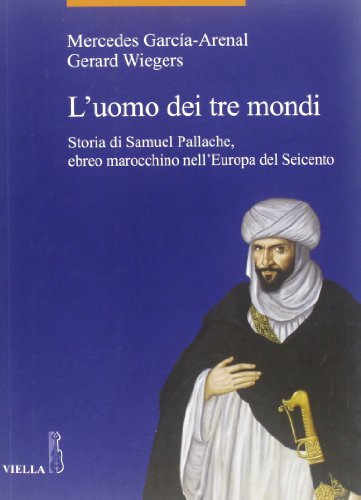
Among her main publications are:
- After Conversion: Iberia and the Emergence of Modernity. Translated by Martin Beagles and Nicholas Callaway. Leiden: Brill, 2016.
- With Fernando Rodríguez Mediano, Un Oriente español. Los moriscos y el Sacromonte en tiempos de Contrarreforma (Madrid: Marcial Pons, 2010). The Orient in Spain: Converted Muslims, the Forged Lead Books of Granada and the Rise of Orientalism (Leiden: Brill, 2013) Taking as its main subject some notorious forgeries by Muslim converts in sixteenth-century Granada (including an apocryphal gospel in Arabic) this book studies the emotional, cultural and religious world-view of the Morisco minority and the complexity of its identity, caught between the wish to respect Arabic cultural traditions, and the pressures of evangelization and efforts at integration into “Old Christian” society. The book also addresses questions of Orientalist scholarship in Early Modern Spain, in which an interest in Oriental languages, mainly Arabic, was linked to important historiographical questions, such as the uses and value of Arabic sources, and the problem of the integration of al-Andalus within a providentialist history of Spain. The authors have considered these issues not only from a local point of view, but from a wider perspective, in an attempt to understand how these matters related to more general European intellectual and religious developments.
- With Gerard A. Wiegers, Entre el Islam y Occidente. Vida de Samuel Pallache, judío de Fez (Madrid: Siglo XXI, 2002 [1999]) translated into English as A Man of Three Worlds: Samuel Pallache, a Moroccan Jew between Catholic and Protestant Europe (Baltimore: Johns Hopkins University Press, 2003); Arabic (Cairo: Ministry of Culture, 2006); Italian (Rome: Casa Editrice Viella, 2013), and Dutch (Amsterdam: University Press, 2014). This book reconstructs the story of a Jewish Moroccan family between Catholic Spain and the Protestant Low Countries.
- Ahmad al-Mansur (1578–1603): The Beginnings of Modern Morocco (Series Makers of the Muslim World). Oxford: Oneworld, 2009
- Messianism and Puritanical Reform: Mahdis of the Muslim West (Leiden: Brill, 2006). In this book I analysed the connection between Sufi legitimation, sacred descent and expectations of the coming of a Mahdi, that is a second Muhammad. I also looked at how prophetic descent (sharifism) functioned as symbolic capital in Iberia and the Maghreb.
- Inquisición y moriscos. Los procesos del Tribunal de Cuenca (Madrid: Siglo XXI, 1978. 2nd ed. 1983, 3rd ed. 1988). A study of converted Muslims and their practice of Islam through Inquisition trials.
Maribel Fierro
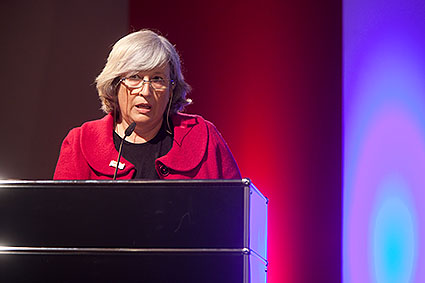 Maribel Fierro holds a PhD with high distinction in Semitic Philology from the Universidad Complutense (1985). After teaching from 1983 to 1986 at its Department of Arabic Studies and obtaining the position of Associate Professor, she moved to the Consejo Superior de Investigaciones Científicas, where she is currently Research Professor. She has also taught at Stanford University (spring term 2002), University of Chicago (autumn term 2011), and the EHESS, Paris, where she was ‘Directeur d’Études’ in 1998 and 2012. She was a Visiting Scholar at the Institute for Advanced Study in Princeton in 1994-95, one of the most formative experiences in her trajectory, together with her stay at the School of Oriental and African Studies in London (1982-83) with a British Council scholarship. She was also granted scholarships by the Spanish Ministry of Education, the Spanish Ministry of Foreign Affairs, the Deutsche Forschungsgemeinschaft, the British Academy, and University of Utrecht-CSIC.
Maribel Fierro holds a PhD with high distinction in Semitic Philology from the Universidad Complutense (1985). After teaching from 1983 to 1986 at its Department of Arabic Studies and obtaining the position of Associate Professor, she moved to the Consejo Superior de Investigaciones Científicas, where she is currently Research Professor. She has also taught at Stanford University (spring term 2002), University of Chicago (autumn term 2011), and the EHESS, Paris, where she was ‘Directeur d’Études’ in 1998 and 2012. She was a Visiting Scholar at the Institute for Advanced Study in Princeton in 1994-95, one of the most formative experiences in her trajectory, together with her stay at the School of Oriental and African Studies in London (1982-83) with a British Council scholarship. She was also granted scholarships by the Spanish Ministry of Education, the Spanish Ministry of Foreign Affairs, the Deutsche Forschungsgemeinschaft, the British Academy, and University of Utrecht-CSIC.
She is currently the Principal Investigator of an ERC Advanced Grant (F03049, 2009-2014), “Knowledge, Heresy and Political Culture in the Islamic West (8th-15th centuries)”. Her research focuses on the intellectual history of pre-modern Islamic societies (mostly the Maghreb and al-Andalus), with special attention paid to Islamic law, religious deviation, production and circulation of books, the social practices of religious scholars, the pedagogical process, and the construction of political and religious authority and legitimacy. She has directed two projects dealing with violence in past Islamic societies, a topic that continues to hold her interested. She also follows contemporary developments in the Islamic world, especially in relation to the approach to Islamic religious traditions on the part of Muslims living outside Islamic countries.
Her major publications include:
- (ed.), Orthodoxy and heresy in Islam: Critical Concepts in Religious Studies, 4 vols., Routledge, 2013. The Almohad revolution. Politics and religion in the Islamic West during the twelfth-thirteenth centuries, Ashgate: Variorum, 2012.
- with C. Adang and S. Schmidtke (ed.), Ibn Hazm of Cordoba. The Life and Works of a Controversial Thinker, Leiden: Brill, 2012.
- (ed.) vol. II: The Western Islamic world, eleventh-eighteenth centuries of the The New Cambridge History of Islam, general editor M. Cook, Cambridge University Press, 2010.
- Abd al-Rahman III, The first Cordoban caliph, Oneworld, 2005.
- with P. Cressier and J.-P. van Staëvel (ed.), L'urbanisme dans l'Occident musulman au Moyen Age: aspects juridiques, Madrid: CSIC / Casa de Velázquez, 2000Her major publications include:
- (ed.), Orthodoxy and heresy in Islam: Critical Concepts in Religious Studies, 4 vols., Routledge, 2013. The Almohad revolution. Politics and religion in the Islamic West during the twelfth-thirteenth centuries, Ashgate: Variorum, 2012.
- with C. Adang and S. Schmidtke (ed.), Ibn Hazm of Cordoba. The Life and Works of a Controversial Thinker, Leiden: Brill, 2012.
- (ed.) vol. II: The Western Islamic world, eleventh-eighteenth centuries of the The New Cambridge History of Islam, general editor M. Cook, Cambridge University Press, 2010.
- Abd al-Rahman III, The first Cordoban caliph, Oneworld, 2005.
- with P. Cressier and J.-P. van Staëvel (ed.), L'urbanisme dans l'Occident musulman au Moyen Age: aspects juridiques, Madrid: CSIC / Casa de Velázquez, 2000Her major publications include:
- (ed.), Orthodoxy and heresy in Islam: Critical Concepts in Religious Studies, 4 vols., Routledge, 2013. The Almohad revolution. Politics and religion in the Islamic West during the twelfth-thirteenth centuries, Ashgate: Variorum, 2012.
- with C. Adang and S. Schmidtke (ed.), Ibn Hazm of Cordoba. The Life and Works of a Controversial Thinker, Leiden: Brill, 2012.
- (ed.) vol. II: The Western Islamic world, eleventh-eighteenth centuries of the The New Cambridge History of Islam, general editor M. Cook, Cambridge University Press, 2010.
- Abd al-Rahman III, The first Cordoban caliph, Oneworld, 2005.
- with P. Cressier and J.-P. van Staëvel (ed.), L'urbanisme dans l'Occident musulman au Moyen Age: aspects juridiques, Madrid: CSIC / Casa de Velázquez, 2000
She is involved as Sectional editor (Religious Sciences) in the publication of the Encyclopedia of Islam, 3rd edition, and is a member of the editorial boards of Handbook of Oriental Studies (Brill) and the journals Intellectual History of the Islamicate world, Studia Islamica, Al-Qantara, and Der Islam. She has recently been appointed Member of the Academia Europea (2013).
She recently co-directed the 2013 PhD dissertation by Omayra Herrero, “El perdón del gobernante (al-Andalus, ss. II/VIII-V/XI). Una aproximación a los valores político-religiosos de una sociedad islámica pre-moderna” (with R. El-Hour, Universidad de Salamanca), which obtained high distinction and ‘Doctor Europeus’.
She loves black and white movies, Russian food, museum shops, and walking both in urban and rural spaces, preferably while talking with her son.
Photograph © Research Unit Intellectual History of the Islamicate World, Freie Universität Berlin (photographer: Ernst Fesseler)
Therese Martin
 Therese Martin holds a PhD with high distinction in the History of Art and Architecture from the University of Pittsburgh (2000). Prior to joining the Centro de Ciencias Humanas y Sociales of the Consejo Superior de Investigaciones Científicas, Madrid in 2009, she taught 2000-2009 at the University of Arizona (tenured in 2006), where in 2005 she received an Honors College Excellence in Teaching Award and was named Outstanding College of Fine Arts Faculty.
Therese Martin holds a PhD with high distinction in the History of Art and Architecture from the University of Pittsburgh (2000). Prior to joining the Centro de Ciencias Humanas y Sociales of the Consejo Superior de Investigaciones Científicas, Madrid in 2009, she taught 2000-2009 at the University of Arizona (tenured in 2006), where in 2005 she received an Honors College Excellence in Teaching Award and was named Outstanding College of Fine Arts Faculty.
She is currently the Principal Investigator of an ERC Starting Grant (no. 263036, 2010-2014), “Reassessing the Roles of Women as ‘Makers’ of Medieval Art and Architecture.” Her research centers on women's contributions to medieval art and architecture; the art of the three faiths of medieval Iberia; Romanesque architecture and sculpture; and Spanish medieval palaces. In support of this research, she has received the Edilia and François-Auguste de Montêquin Senior Fellowship in Iberian and Latin American Architecture, Society of Architectural Historians (2006); Samuel H. Kress Foundation grants (2004, 2006, 2009); grants from the Program for Cultural Cooperation be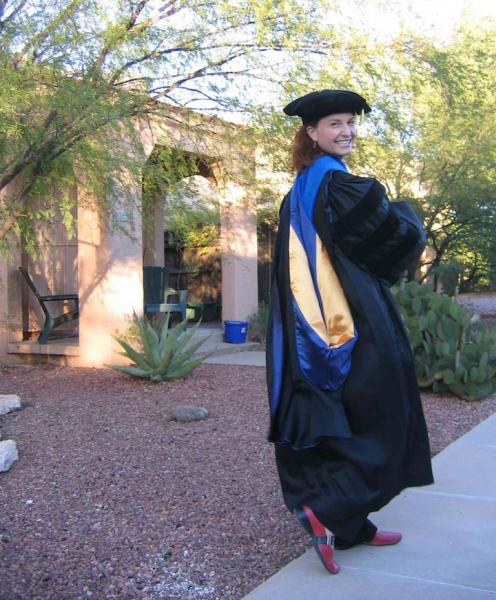 tween Spain's Ministry of Culture and United States' Universities (2003, 2004, 2006, 2008); a Getty Postdoctoral Fellowship (2002-2003); an Andrew W. Mellon Predoctoral Fellowship (1998-1999); and a Fulbright Fellowship, Spain (1997-1998), among others.
tween Spain's Ministry of Culture and United States' Universities (2003, 2004, 2006, 2008); a Getty Postdoctoral Fellowship (2002-2003); an Andrew W. Mellon Predoctoral Fellowship (1998-1999); and a Fulbright Fellowship, Spain (1997-1998), among others.
Her major publications include:
- (ed.), Reassessing the Roles of Women as ‘Makers’ of Medieval Art and Architecture, 2 vols., Leiden, 2012.
- “Vie et mort dans le Panthéon de San Isidoro de León,” Les Cahiers de Saint-Michel de Cuxa 42 (2011), pp. 153-164.
- “Chronicling the Iberian Palace: Written Sources and the Meanings of Medieval Christian Rulers' Residences,” Journal of Medieval Iberian Studies 2/1 (2010), pp. 109-139.
- “Hacia una clarificación del infantazgo en tiempos de la reina Urraca y su hija la infanta Sancha (ca. 1107-1159),” e-Spania, Revue électronique d'études hispaniques médiévales 5, June 2008, http://e-spania.revues.org/document12163.html.
- Queen as King: Politics and Architectural Propaganda in Twelfth-Century Spain, Leiden, 2006.
- “The Art of a Reigning Queen as Dynastic Propaganda in Twelfth-Century Spain,” Speculum 80 (2005), pp. 1134-1171.
- Church, State, Vellum, and Stone: Essays on Medieval Spain in Honor of John Williams, eds. T. Martin and J. A. Harris, Leiden, 2005.
She has been invited to present her work at Cambridge University, Courtauld Institute of Art, University of St. Andrews, Université Sorbonne, Saint-Michel de Cuxa, EHESS-Paris, University of Amsterdam, Princeton University, Georgetown University, Universidad de Salamanca, Universitat de Barcelona, University College Cork, and other sites in seven countries.
She is currently co-directing two PhD dissertations:
Amanda Dotseth, “San Quirce de Burgos: Piety and Patrimony in the Long Life of a Romanesque Church” (with John Lowden, Courtauld Institute of Art, University of London).
José Antonio Haro Peralta, “The Urban Economy of Baghdad in the 11th Century” (with Rachid El-Hour, Universidad de Salamanca).
She was a member of the Fulbright Spain Selection Committee 2011-2012, and now serves on the Executive Editorial Board of the Journal of Medieval Iberian Studies (since 2011), and the International Advisory Boards of the Hispanic Research Journal, London (since 2007) and the Revista Chilena de Estudios Medievales, Santiago de Chile (since 2011).
In the free time she manages to wrest from her research, she is a dedicated reader of British mysteries, a consummate baker of all things sweet, and an ambler on isolated beaches.
Ana Rodriguez
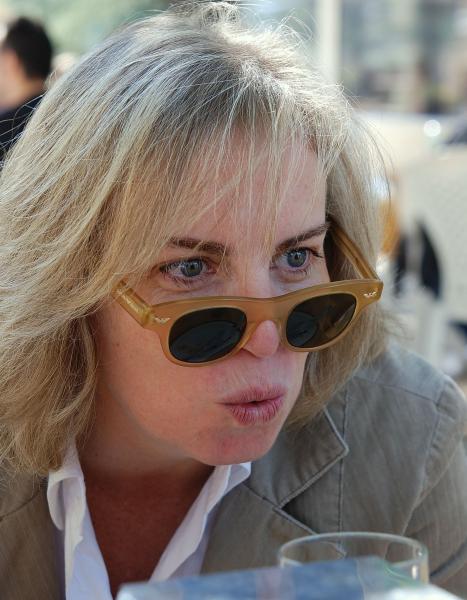 Ana Rodríguez holds a PhD with high distinction in Mediaeval History from the Universidad Complutense de Madrid (1992). She was a doctoral fellow at the École des Hautes Études en Sciences Sociales in Paris (1990-1993) where she followed the seminars of Profs. Duby, Le Goff and Toubert and learned about the renewal of the history of power and the need to find new approaches in order to understand the socialisation of political processes in the Middle Ages. Since 1994, she held several postdoctoral positions at the Consejo Superior de Investigaciones Científicas, and in 2004 she joined the Institute of History of the CSIC. She is currently Scientific Researcher at the Centro de Ciencias Humanas y Sociales, CSIC.
Ana Rodríguez holds a PhD with high distinction in Mediaeval History from the Universidad Complutense de Madrid (1992). She was a doctoral fellow at the École des Hautes Études en Sciences Sociales in Paris (1990-1993) where she followed the seminars of Profs. Duby, Le Goff and Toubert and learned about the renewal of the history of power and the need to find new approaches in order to understand the socialisation of political processes in the Middle Ages. Since 1994, she held several postdoctoral positions at the Consejo Superior de Investigaciones Científicas, and in 2004 she joined the Institute of History of the CSIC. She is currently Scientific Researcher at the Centro de Ciencias Humanas y Sociales, CSIC.
She has been the Principal Investigator of several research projects funded by the Spanish national government: Construcción y representación del poder regio en Castilla y León, siglos XI-XIII (2003-2006 and 2006-2010) and Los Espacios del Poder Regio ca. 1050-1385. Procesos Políticos y Representaciones (2011-2013) in collaboration with the University of Valladolid, along with two collaborative projects between the CSIC and Université Paris I/CNRS: Évaluer et convertir. La Circulation de richesses au Moyen Âge (2009-2010) and Expertise et valeur des choses au Moyen Âge (2011-2012).
She has been the Coordinator of an Initial Training Network (Marie Curie Actions) funded by the 7th Framework Program of the European Union: Power and Institutions in Medieval Islam and Christendom (PIMIC). (2013-2016)
Since 2017 she is Principal Investigator (with Prof. Sandro Carocci, Università Roma Tor Vergata, as cobeneficiary) of the Advanced Grant from the European Research Council (ERC) funded by Horizon 2020. “Petrifying Wealth. The Southern European Shift to Collective Investment in Masonry as Identity , c.1050-1300”.
Her main publications include: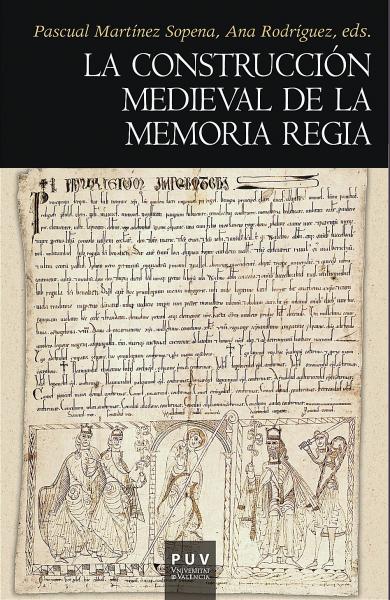
- “Narratives of Expansion, Last Wills, Poor Expectations and the Conquest of Seville (1248)”, in John Hudson and Sally Crumplin, The Making of Europe. Essays in honor of Robert Bartlett, Brill, 2016.
- Expertise et valeur des choses au Moyen Âge (2). Savoirs, Écritures, Pratiques (ed. with Laurent Feller). Publications Casa de Velázquez, 2016.
- "La Estirpe de Leonor de Aquitania. Mujeres y poder en los siglos XII y XIII". pp. 1 - 336. Editorial Crítica, Barcelona, 2014.
- Diverging Paths? The Shape of Power and Institutions in Medieval Christendom and Islam (ed. with John Hudson), Brill, 2014
- Objets sous contrainte. Circulation et valeur des choses au Moyen Âge (ed. with Laurent Feller), Publications de la Sorbonne, 2013.
- La construcción medieval de la memoria regia (ed.with Pascual Martínez Sopena), Publicaciones de la Universidad de Valencia, 2011.
- Beyond the market. Transactions, Property and Social Networks in Monastic Galicia. 1200-1300, Brill, 2002 (with Reyna Pastor, Esther Pascua and Pablo Sánchez Léon)
- La consolidación territorial de la monarquía feudal castellana. Expansión y fronteras durante el reinado de Fernando III (1217-1252), CSIC, 1994.
She is also the author of more than thirty articles and chapters in international journals and books, member of the Editorial Board of Hispania (until 2012), Edad Media: Revista de Historia and Arenal: Revista de Historia de las Mujeres, and international expert in evaluation committees in mediaeval studies.
Even if it is not always easy, she tries to reconcile her life as a researcher with the not-less-exciting one she shares with three children.

